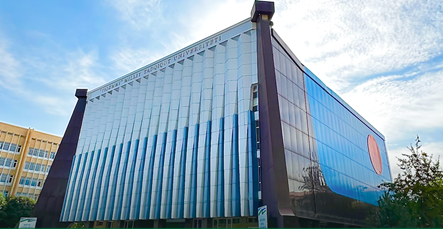THE IMPACT OF WORDS PRAISE AND CRITICISM ON STUDENTS IN HIGH SCHOOLS
Keywords:
Academic performance, student motivation, praise, criticism, feedback, learning, higher education, educational psychology, constructive feedback, self-esteem, achievement, positive reinforcement, negative feedback, differentiated approach, effort-based praise, process praise, outcome praise, sandwich method.Abstract
Research has indicated that peer feedback improves the process and product of students’ English skills. However, the different types of peer feedback have not been systematically studied. The sample consisted of 120 students from five Uzbek universities studying humanities and technical disciplines. The participants filled out a questionnaire containing questions about the frequency of receiving praise and criticism and how it affected their motivation and academic performance. The participants filled out a questionnaire containing questions about the frequency of receiving praise and criticism and how it affected their motivation and academic performance. Two groups were identified for comparison: students in classes with a predominant use of praise (Class 1) and students in classes with a predominant use of criticism (Class 2). Additionally, semi-structured interviews were conducted with teachers to analyze their views on the use of praise and criticism in the educational process (2024). It was found in this study that students had an exceptional high tendency for using suggestion feedback and least tendency for praise feedback. This paper concludes with a discussion for teacher implications.
References
& Kumar, S. (2024). FEA of GTAW process parameters for dissimilar materials of aluminium alloys. In E3S Web of Conferences (Vol. 563, p. 02005). EDP Sciences.
Bitchener, J., Young, S., & Cameron, D. (2005). The effect of different types of corrective feedback on ESL student writing. Journal of Second Language Writing, 14, 191–205.
Boqieva, M. (2024, April). DEVELOPING SPEAKING SKILLS OF ESP STUDENTS. In Conference Proceedings: Fostering Your Research Spirit (pp. 169-171).
Connors, R. J., & Lunsford, A. (1993). Teachers’ rhetorical comments on stu dent papers. College Composition and Communication, 44, 200–223.
Dragga, S. (1985). Praiseworthy grading. Journal of Teaching Writing, 4, 264 268. Ferris, D. R. (1995). Student reactions to teacher commentary on student revision TESOL Quarterly, 31, 315–339.
Ferris, D. R. (2004). The “grammar correction” debate in L2 writing: Where are we, and where do we go from here? (and what do we do in the meantime.?) Journal of Second Language Writing, 13, 49–62.
Ferris, D., & Roberts, B. (2001). Error feedback in L2 writing classes: How explicit does it need to be? Journal of Second Language Writing, 10, 161 184.
Lee, N. S. C., & Tajino, A. (2008). Understanding students’ perceptions of diffi culty with academic writing for teacher development: A case study of the University of Tokyo writing program, Kyoto University Researches in Higher Education, 14, 1–11.
Madalieva, D. B. (2019). LEARNING ASPECTS OF ORIGINATING THE TERMS OF ACCOUNTING IN THE LINGUISTIC RESEARCH. Экономика и социум, (11 (66)), 58-61.
MADALIYEVA, D. (2024). BUXGALTERIYA-AUDIT ATAMALARINI QIYOSIY-TIPOLOGIK O ‘RGANISH (INGLIZ VA O ‘ZBEK TILLARI MISOLIDA). News of the NUUz, 1(1.6. 1), 335-337.
Panthangi, R. K., Pant, S., Abbas, H. M., Parpiyeva, U., Saparbaeva, N., Sanduru, B., Nigmatovna, U. F., & Qizi, B. M. O. (2024). MANAVIY BARKAMOL AVLODNI TARBIYALASH MASALALARI. Science and innovation, 3(Special Issue 32), 160-164.
Rakhmanov, S., Turaev, K., & Madalieva, D. (2023). Implementation of mathematical models and algorithms in task control of the microalgae cultivation processes. In E3S Web of Conferences (Vol. 377, p. 03010). EDP Sciences.
Xasanovna, P. U., & Usmonova, D. I. (2024). AVTOMOBIL SOHASIGA OID TERMINLAR ETIMIOLOGIYASI. Science and innovation, 3(Special Issue 32), 39-42.
Published
Versions
- 2025-03-14 (2)
- 2025-03-07 (1)










